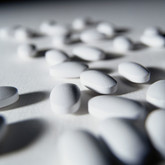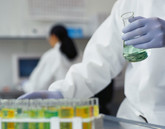Biosimilars/News
Production of 24 biogeneric products in Iran by 2012
According to reports on Iran’s English-language television network, Press TV, Iran is making significant advances in biogeneric products and biotechnology drugs and is planning to start the production of 24 additional biogeneric products drugs by the end of 2012.
Amgen’s response to biosimilar substitution legislation in US
Amgen, in a statement issued on 1 February 2013, has hit back at accusations that the biotech giant is attempting to limit the uptake of biosimilars in the US by backing state bills, which constrain the use of biosimilars.
Merck makes biosimilars deal with Samsung Bioepis
Pharma Giant Merck announced on 20 February 2013 that it had made a deal to develop and commercialize biosimilars with Samsung Bioepis.
AMAC and GPhA hit back at Big Pharma over biosimilars
The Association of Mature American Citizens (AMAC) and the Generic Pharmaceutical Association (GPhA) have reacted strongly to the actions by Amgen and Genentech, which aim to make it more difficult for patients to get access to biosimilar medicines [1].
Biotech firms try to limit biosimilar substitution in US
FDA is still to approve a biosimilar and has yet to issue final guidelines outlining the regulatory requirements for approval of a biosimilar in the US.
China-based Innovent gains funding for expansion
Innovent Biologics (Innovent) has raised US$25 million in Series B financing to put towards the continued expansion of its pipeline and manufacturing capabilities.
Finox submits r-FSH biosimilar application to EMA
Finox Biotech announced on 20 December 2012 that it had submitted a Marketing Authorisation Application (MAA) for its biosimilar recombinant follicle stimulating hormone (r-FSH) to EMA on 30 October 2012.
ProCognia completes global glycoanalysis centre
Israeli biotech company ProCognia announced on 14 January 2013 the completion of its global centre of excellence for glycoanalytics.
Biosimilar trastuzumab made in tobacco plants
Canada-based PlantForm have altered tobacco plants to create a biosimilar version of Roche’s breast cancer drug Herceptin (trastuzumab).
CCM and Biocon make biosimilar insulin deal
Malaysia-based Chemical Company of Malaysia Berhad (CCM), announced on 14 December 2012 an agreement between its subsidiary, CCM Pharmaceuticals Sdn Bhd (CCMP), and India-based Biocon, giving CCMP exclusive licence and distribution rights to market, sell and distribute a range of insulin products in Malaysia and Brunei.













